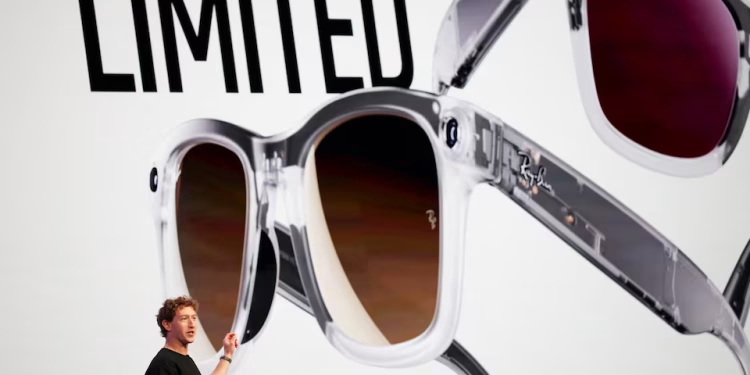Meta has unveiled its first consumer-ready smart glasses with a built-in display, aiming to build on the success of its Ray-Ban line. But analysts warn the $799 starting price may put off everyday buyers.
CEO Mark Zuckerberg introduced the “Ray-Ban Display” glasses Wednesday at Meta’s Connect conference in Menlo Park. The device features a small digital display in the right lens for basic tasks such as notifications. It also comes with a wristband controller that translates hand gestures into commands, like responding to texts or calls.
“Glasses are the ideal form factor for personal superintelligence,” Zuckerberg said, calling the product a gateway to everyday AI. The launch received applause, though some demos stumbled, including a failed call attempt.
The glasses will hit stores September 30. Meta also rolled out Oakley-branded “Vanguard” glasses for athletes, priced at $499, and an updated Ray-Ban line with longer battery life and an improved camera at $379.
Analysts remain cautious about sales. “It’s not really a device that the average consumer might know about or care to purchase,” said Jitesh Ubrani of IDC. Still, he noted the value of the technology packed into the frames.
Beyond price, Meta faces growing scrutiny over child safety on its social platforms. Recent reports claim company chatbots engaged minors in troubling conversations, while whistleblowers allege internal pressure to downplay harms of virtual reality.
Industry watchers see the Display glasses as an incremental step toward Meta’s more ambitious “Orion” project, slated for 2027. Forrester’s Mike Proulx compared the launch to Apple’s early Apple Watch pitch: “Glasses are an everyday, non-cumbersome form factor,” he said.
IDC forecasts shipments of AR and VR devices will grow nearly 40% in 2025, with Meta expected to drive much of the momentum through its cheaper Ray-Ban models.























































